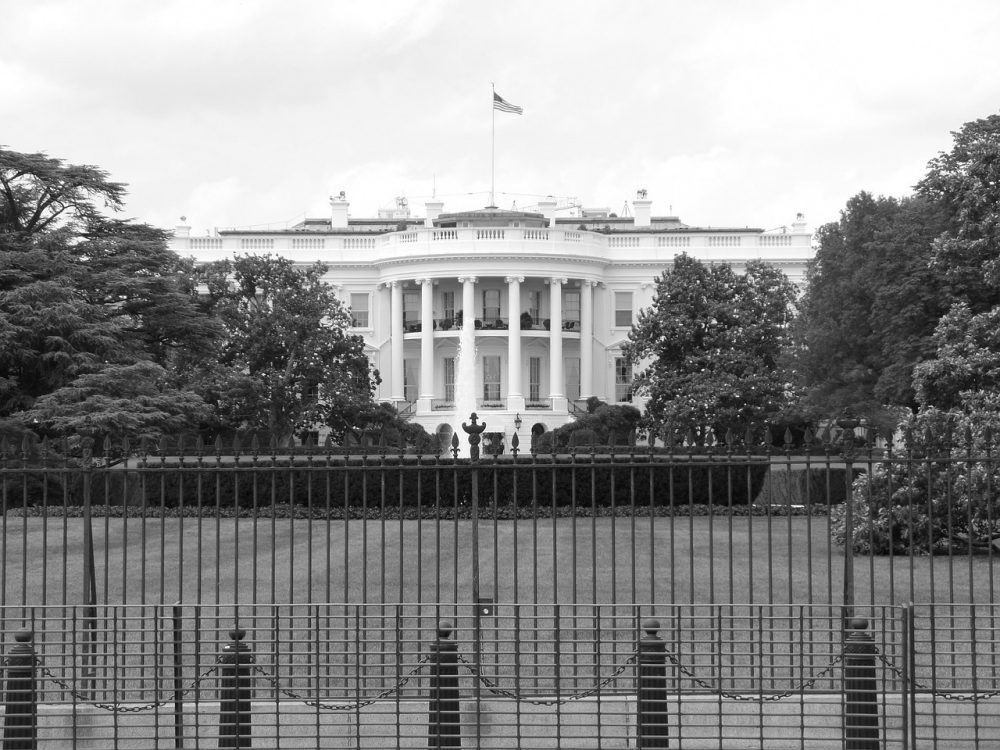President Trump’s schedule (EST):
No public events are scheduled.
President Trump will delay his State of the Union speech until after the shutdown per this Tweet and that Tweet late last night.
Treasury Secretary Mnuchin will speak at 2 PM to the U.S. Conference of Mayors meeting in D.C. Watch it live on C-SPAN3.
Two Senate shutdown end votes will very likely fall short starting at 2:30 PM today. Tuesday, Senate Majority Leader Mitch McConnell (R-KY) and Senate Minority Leader Chuck Schumer (D-NY) agreed to vote first on the Republican plan as an amendment to the House-passed spending bill, H.R.268 ( CBO cost estimate), to be followed by a cloture vote on a Democratic amendment to fund the government through February 8th. Each would require 60 votes to advance.
Politico’s Playbook reported this morning:
WASHINGTON IS GETTING MORE SERIOUS ABOUT ENDING THE SHUTDOWN: Look around. SPEAKER NANCY PELOSI (D-CALIF.) and her Democratic leadership are cobbling together a $5-billion-plus border security offer — a big step for a party that said it wouldn’t negotiate with the government closed. Freshman Democrats seem more itchy to find a way to end this as the days go on.
THE WHITE HOUSE has put immigration policy changes on the table. SENATE MAJORITY LEADER MITCH MCCONNELL (R-KY.) is off the sidelines. He met privately Wednesday afternoon with HOUSE MINORITY LEADER KEVIN MCCARTHY (R-CALIF.) in McCarthy’s Capitol office. REP. MARK MEADOWS (R-N.C.) was in a private chat yesterday afternoon with HOUSE APPROPRIATIONS CHAIRWOMAN NITA LOWEY (D-N.Y.) on the House floor.
… DO NOT EXPECT A RESOLUTION THIS WEEK: The House leaves by noon today. The Senate is expected to vote down both the clean stopgap bill and the president’s plan. The House has warned lawmakers that they could be called back within 24 hours to vote.
A Continuing Resolution to Fund the Government Through February 28th, H.J.Res.28, Passed the House Yesterday, 229-184. The 1:44 PM vote won’t matter because the Senate won’t take it up.
The Consolidated Appropriations Act, H.R.648, Passed the House Yesterday, 234-180. The 3:54 PM vote won’t matter because the Senate won’t take it up. The $271.8 b. bill would have funded all remaining departments except for the Department of Homeland Security and The Wall.
“The Shutdown’s Economic Toll Equals the Average Hurricane.” Check out the $26 b. Committee for a Responsible Federal Budget estimate for a 4-week shutdown, nearly the $27 b. for an average hurricane as estimated by the Congressional Budget Office.
Cancelled: “The Shutdown’s Impact on the Department of Treasury and American Taxpayers.” Treasury Secretary Mnuchin’s testimony before the House Ways and Means Committee, originally scheduled for 10:30 AM today, has been cancelled because he refused to appear per Chair Neal’s statement.
CBO: “Baseline Budget Projections.” Yesterday’s 29-slide presentation explained how the Congressional Budget Office estimates its baseline outlay and revenue projections. CBO will release its new projections at 10 AM next Monday.
CBO: “Federal Grants to State and Local Governments for Investment.” Yesterday’s 13-slide Congressional Budget Office presentation detailed federal grants to state and local governments for infrastructure FY62-FY17, which totaled $302 b. in FY17, $124 b. for education and training, $114 b. for physical capital, and $64 b. for R&D.
“Proposals to keep older people in the labor force.” This morning’s Brookings event (webcast here) featuring Martin Baily and NBER President James Poterba will reference this 21-page report by Alicia Munnell and Abigail Walters of the Boston College Center for Retirement Research.
Older people need to work longer in order to ensure a secure retirement Social Security, the backbone of the retirement system, will not replace as much preretirement income in the future as it does today. Employer-sponsored retirement plans also involve considerably more uncertainty, given the shift from defined benefit plans to 401(k) plans. With these institutional saving arrangements on the decline, people could decide to save more on their own. But personal saving outside employer plans is virtually nonexistent, with the exception of home equity—an asset that retirees are reluctant to tap. Combine the retirement income crunch with the dramatic increase in life expectancy and growing health care costs, and continued employment in later life is the best option for ensuring financial security. The challenge is to ensure that older Americans plan to keep working and that employers retain and hire them.
2020 Election: “Does Larry Hogan Have A Shot Against Trump In A 2020 GOP Primary?” Yesterday afternoon’s FiveThirtyEight analysis concluded:
All in all, it would be tough sledding for Hogan to defeat Trump in the 2020 GOP presidential primary. Nonetheless, he’s a popular governor who would present a clear-cut alternative to the president. So perhaps Hogan could make a splash and win over a substantial chunk of the Republican electorate. That alone would be significant: The past three presidents to endure a notable primary challenge — Gerald Ford in 1976, Jimmy Carter in 1980 and George H.W. Bush in 1992 — all went on to lose in the general election.
“Liberals Outpaced Conservatives in ‘Dark Money’ Midterm Spending.” Check out yesterday’s Wall Street Journal article, which led with:
WASHINGTON—As Democratic presidential hopefuls promise not to boost their candidacies through spending by outside groups with cash from wealthy donors, sometimes given secretly, a new report says the party received most of the so-called “dark money” spent on political ads in the 2018 midterms.
That marked the first time since 2010 that liberal nonprofits outspent conservative ones, according to a report by Issue One, an organization that advocates reducing money in politics. Liberal groups accounted for 54% of the $150 million in dark-money spending in last year’s election cycle, conservative groups 31% and nonpartisan or bipartisan groups 15%.
I’ve railed against what I call “the sewer of campaign finance” ever since I left Congress in 1992. It’s an arms race that corrupts, not so much by buying votes, but by giving private interests the power to kill legislation. In my opinion, this is one of the main reasons Washington can barely get anything done anymore.







